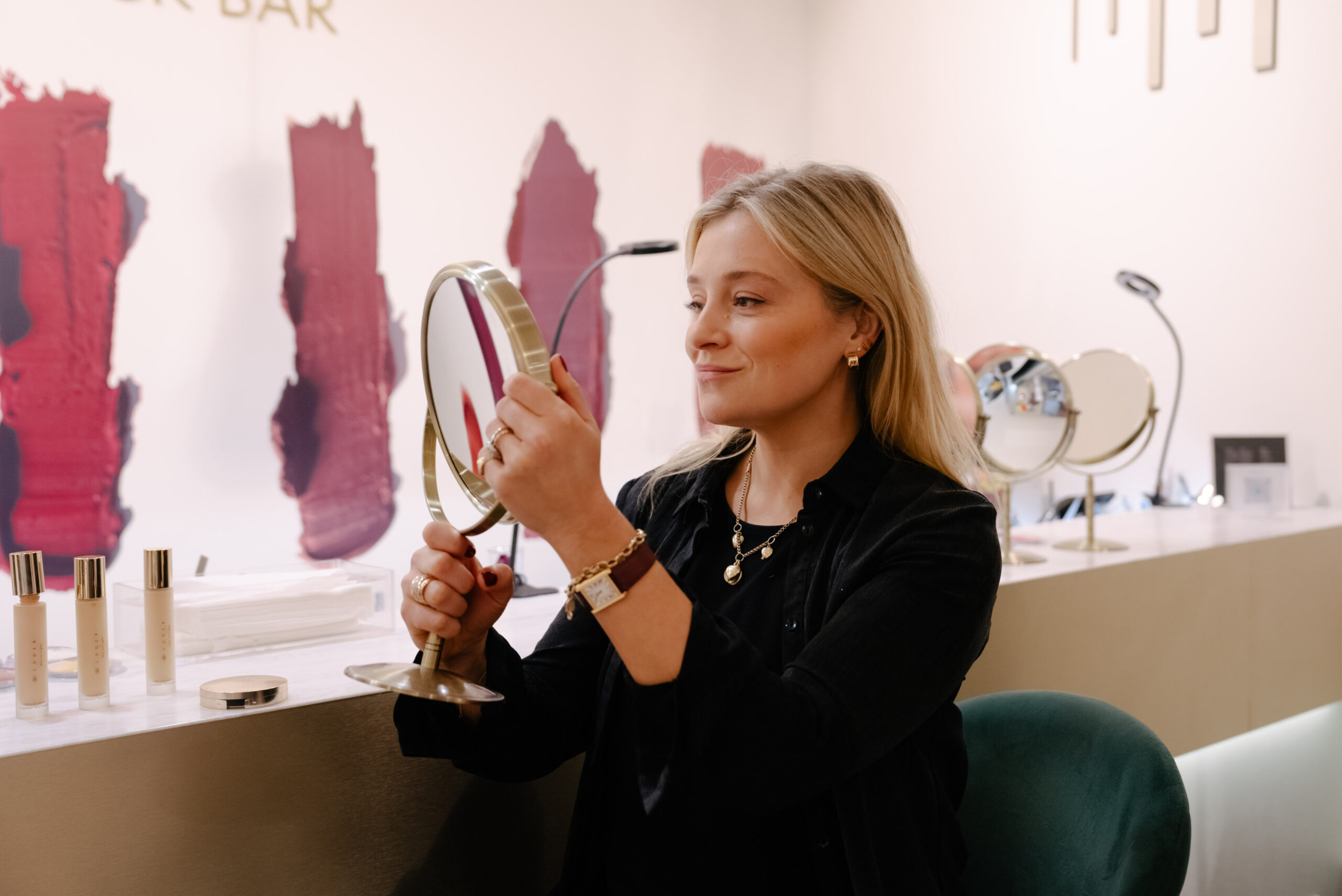Do the best investments come in small packages?
Abby Glennie of Aberdeen Standard Investments takes a look at how small companies could be particularly well-placed to bounce back from the pandemic.

Smaller companies have done well as economies have started to recover
Cyclical companies have rallied in recent months on the back of stronger economic data
We are maintaining our focus on quality companies that score highly on ESG metrics
Smaller companies often lead stock markets in a recovery phase. This time, as the world emerges from the pandemic, has been no exception. However, investors need to be careful in their exposure to ensure they aren’t left holding poor quality companies, bought for their cheapness rather than their long-term durability.
Over the past year, since the lockdowns started across the UK, the IA UK Smaller Companies sector tops the league tables, with the average fund rising 71.7% (source: Trustnet, to 29 March 2021). There are plenty of reasons for this strength: smaller companies often reflect the most dynamic areas of the economy. The sector is full of profitable companies, paying good dividends with good governance. The sector had been hit unfairly by fears of economic stagnation and the impact of Brexit, so was due a reappraisal.
However, while this vindicates our faith in smaller companies, we are also being careful not to get caught up in the recent enthusiasm for poorer quality companies – a so-called ‘dash for trash’. While the early months of the pandemic saw investors seek out quality small companies, with strong balance sheets and capable management – the type of companies we hold in our portfolios – the last few months have seen weaker companies recover. This has partly been driven by the more cyclical recovery, and troubled sectors looking to emerge from lockdowns.
We’re not tempted to change our focus. This shorter-term rally may be seductive, but these are not the type of companies we want to hold for the longer-term. We’ve taken the same approach, focused on quality, growth and momentum, for over 20 years and it has worked through many different market conditions. The pandemic showed its resilience.
The recent crisis has made a powerful case for prioritising those companies with strong balance sheets. Those without debt were able to invest, grow and build market share. Good management teams were able to tilt their businesses, finding new opportunities in a changed world.
The problem with buying lower quality companies is that share prices are only being supported by a recovery in the economy. In the longer-term, there is no growth in the companies themselves and the growth is often cyclical rather than structural. In our view, this seems a risky tactic in a fragile environment.
Instead, we have gravitated to areas of structural growth – financial services, leisure goods, media. One of the largest sectors in the portfolio is software and, in particular, companies that are contributing to the digitisation trend. We own Kainos Group, for example, a Belfast-based company providing digitisation services to government institutions. It has played an important role in setting up the government furlough programme.
The pandemic has seen many people start to manage their investment portfolios online and has also contributed to a new interest in sustainable investment. With this in mind, we have weightings in companies such as AJ Bell and Mattioli Woods, plus specialist fund managers such as Impax. We also hold a number of fund administrators, which is a long-term, resilient business area with plenty of visibility.
In leisure goods, we hold several video game groups, including Games Workshop, plus music and audio group Focusrite. These companies have done well from Covid, but we don’t believe their strength will end there, but that they could return to the strong growth pathways they were enjoying well before the pandemic.
In general, we have been downplaying cyclical sectors in the portfolio and we don’t hold housebuilders and conventional retailers. Certainly, some of these companies have ended up looking very cheap, but among smaller companies low valuations are often a sign of distress rather than a bargain. To our mind, portfolios of cheap companies tend to underperform in the longer-term. Also, valuations for many of the companies we like have come down since November. We don’t need to look for cheap companies to find value.
In both Standard Life UK Smaller Companies Trust and Aberdeen Smaller Companies Income Trust, as for the wider Aberdeen Standard business, environmental, social and governance (ESG) considerations are becoming increasingly important. We have an on-desk analyst helping us day to day, who also works closely with the central ESG team. Smaller companies often don’t have the same reporting and disclosure mechanisms in place, so we need to do the fundamental research ourselves. It is a two-way process, with many keen to engage with us to improve their scores.
We are optimistic about the prospects for smaller companies today. We are at the start of a new economic cycle and it is usually a fertile time for this part of the market. However, investors shouldn’t be distracted by the rally in poorer quality companies – good quality companies are well positioned to benefit in the longer-term.
Important information
Risk factors you should consider prior to investing:
- The value of investments and the income from them can go down as well as up and you may get back less than the amount invested.
- Past performance is not a guide to future results.
- Investment in the Company may not be appropriate for investors who plan to withdraw their money within 5 years.
- Investment trusts are specialised investments and may not be appropriate for all investors.
- There is no guarantee that the market price of a Trust’s shares will fully reflect its underlying Net Asset Value.
- As with all stock exchange investments the value of the Company’s shares purchased will immediately fall by the difference between the buying and selling prices, the bid-offer spread. If trading volumes fall, the bid-offer spread can widen.
- The Company may borrow to finance further investment (gearing). The use of gearing is likely to lead to volatility in the Net Asset Value (NAV) meaning that any movement in the value of the company’s assets will result in a magnified movement in the NAV.
- The Company may accumulate investment positions which represent more than normal trading volumes which may make it difficult to realise investments and may lead to volatility in the market price of the Company’s shares.
- The Company may charge expenses to capital which may erode the capital value of the investment.
- The Company invests in the securities of smaller companies which are likely to carry a higher degree of risk than larger companies.
- Derivatives may be used, subject to restrictions set out for the Company, in order to manage risk and generate income. The market in derivatives can be volatile and there is a higher than average risk of loss.
- The Alternative Investment Market (AIM) is a flexible, international market that offers small and growing companies the benefits of trading on a world-class public market within a regulatory environment designed specifically for them. AIM is owned and operated by the London Stock Exchange. Companies that trade on AIM may be harder to buy and sell than larger companies and their share prices may move up and down very sharply because they have lower trading volumes and also because of the nature of the companies themselves. In times of economic difficulty, companies listed on AIM could fail altogether and you could lose all your money.
- Certain trusts may seek to invest in higher yielding securities such as bonds, which are subject to credit risk, market price risk and interest rate risk. Unlike income from a single bond, the level of income from an investment trust is not fixed and may fluctuate.
- With funds investing in bonds there is a risk that interest rate fluctuations could affect the capital value of investments. Where long term interest rates rise, the capital value of shares is likely to fall, and vice versa. In addition to the interest rate risk, bond investments are also exposed to credit risk reflecting the ability of the borrower (i.e. bond issuer) to meet its obligations (i.e. pay the interest on a bond and return the capital on the redemption date). The risk of this happening is usually higher with bonds classified as ‘subinvestment grade’. These may produce a higher level of income but at a higher risk than investments in ‘investment grade’ bonds. In turn, this may have an adverse impact on funds that invest in such bonds.
- Specialist funds which invest in small markets or sectors of industry are likely to be more volatile than more diversified trusts.
- Yields are estimated figures and may fluctuate, there are no guarantees that future dividends will match or exceed historic dividends and certain investors may be subject to further tax on dividends.
- Certain Companies treat the generation of income as a higher priority than capital growth; such Companies may deduct part or all of their management charge from capital. This will increase the amount of income available but at the expense of capital growth.
- Shares of smaller companies may be more difficult to buy and sell than those of larger companies. This means that the Investment Manager may not be able to buy and sell at the best time or may suffer losses. This could reduce your returns.
- Companies selected for illustrative purposes only to demonstrate the investment management style described herein and not as an investment recommendation or indication of future performance.
Other important information
Issued by Aberdeen Asset Managers Limited which is authorised and regulated by the Financial Conduct Authority in the United Kingdom. Registered Office: 10 Queen’s Terrace, Aberdeen AB10 1XL. Registered in Scotland No. 108419. An investment trust should be considered only as part of a balanced portfolio. Under no circumstances should this information be considered as an offer or solicitation to deal in investments. You should obtain specific professional advice before making any investment decision.
Find out more by registering for updates or by following us on Twitter and LinkedIn.
Exquisite houses, the beauty of Nature, and how to get the most from your life, straight to your inbox.
-
 A Cotswolds cottage so perfect it's the stuff of movie fantasy — with a Hollywood A-list asking price to match
A Cotswolds cottage so perfect it's the stuff of movie fantasy — with a Hollywood A-list asking price to matchThis gorgeous, 14th century home is probably the prettiest cottage we've seen all year. It's also one of the most expensive — though there's a very good reason for that, as Toby Keel found out.
-
 How well do you know your poisonous plants? It's the Country Life Quiz of the Day, December 18, 2025
How well do you know your poisonous plants? It's the Country Life Quiz of the Day, December 18, 2025Test your general knowledge this Thursday.
-
 Jewels of the Mediterranean: Luxury multi-generational villa holidays
Jewels of the Mediterranean: Luxury multi-generational villa holidaysThe Thinking Traveller have some of the finest villas in the Mediterranean on their books for multi-generational holidays. Here are just a few of the highlights.
-
 Code8: Beauty on Burlington Arcade
Code8: Beauty on Burlington ArcadeCome along Burlington Arcade with Hetty Lintell to visit beauty gurus Code8, and try their new Day To Night Foundation.
-
 The gift of growing
The gift of growingEntirely built to suit your needs, a bespoke Alitex greenhouse not only helps you nurture flowers and vegetables, but also offers a tranquil retreat from the pressures of daily life.
-
 The ultimate Canadian train journey
The ultimate Canadian train journeyExperience the spectacular scenery of the Canadian Rockies onboard the luxury and top-tier service of Rocky Mountaineer.
-
 Diamonds are a man’s best friend
Diamonds are a man’s best friendMale interest in jewellery is on the rise, with gypsy and signet rings proving especially popular, according to renowned jeweller Hancocks.
-
 The Art of Lighting: Four of Britain's top designers share their best tips for choosing lighting
The Art of Lighting: Four of Britain's top designers share their best tips for choosing lightingAt a recent panel discussion hosted at Vaughan’s London showroom during Focus/24, interior designers Emma Pocock and Sarah Peake, lighting designer Jo Mann of Lighthouse Designs and Richard Smith of Vaughan shared their top 10 tips on choosing lighting.
-
 The beauty of bespoke: A journey with Julia Lloyd George
The beauty of bespoke: A journey with Julia Lloyd GeorgeGoing bespoke with Julia Lloyd George means getting not just a piece of jewellery, but a lifelong treasure.
-
 Hancocks: Sparkle of genius
Hancocks: Sparkle of geniusHistoric jewellery firm Hancocks, now in its new St James’s home, specialises in old-cut diamonds pieces that gleam and turn heads even in low light.

